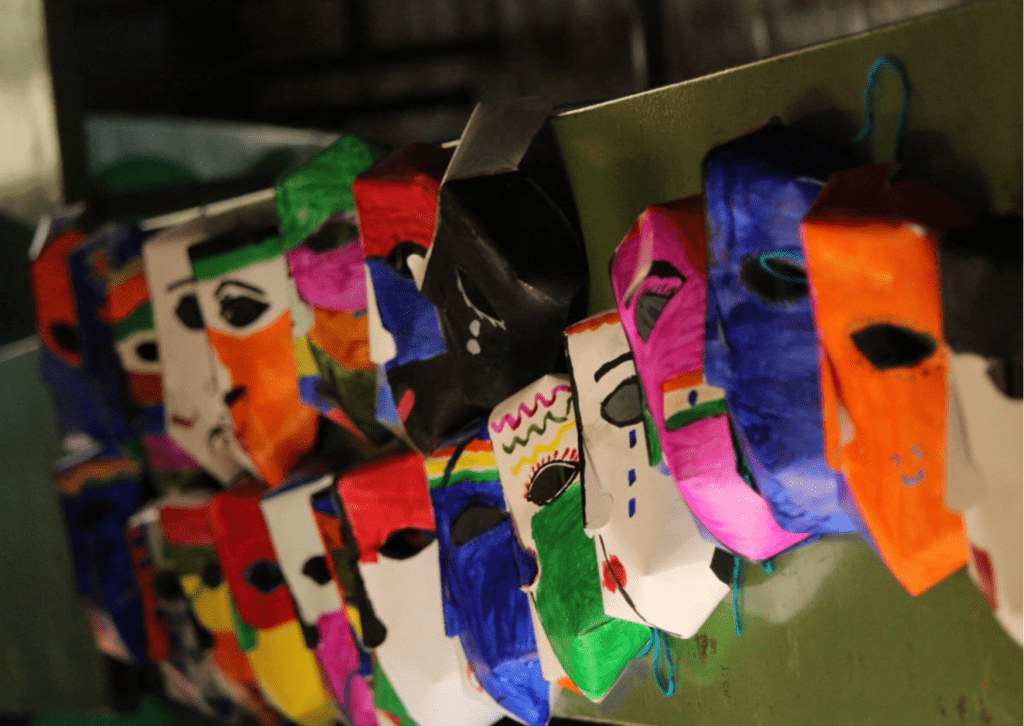
Traditionally, assessment and evaluation, particularly in the fields of mental health and education have been based on a deficit model. A deficit model in assessment is effective in creating a long list of what the child is lacking, and what the child is not able to do. A strengths-based model in assessment, in this regard, is a paradigm shift. An assessment based on this philosophy looks for opportunities to complement and support existing strengths and capacities in the child as opposed to focusing on, and staying with, the problem.
Let’s have a closer look at how we can adopt a strengths-based approach in assessment and evaluations
1. Start with what is present – not what is absent. Write about what works for the child, first.
It is a good idea to start the assessment by exploring what the child enjoys doing and what the child is good at. This helps us get a clearer picture of the child’s skills, competencies and inner resources. By centering the inquiry on the child’s strengths, not only does the child feel valued and validated, but it also gives direction to the facilitator on how to use the inherent strengths of the child to overcome difficulties they may encounter.
2. The problem is separate from the child
Compare the two statements –
- He is a distracted student.
- There is something due to which he feels distracted during the class.
The first statement views the child as the problem. While the second statement acknowledges that the problem is separate from the child, there is a need to address factors in the child’s environment that causes the particular behaviour. Such nuances in linguistics shift the perspective from labelling the child to an action-oriented inquiry of the problem.
3. The ultimate goal of assessment and evaluation is to draw a plan of action
The goal of assessment is geared more towards drawing a plan of action, rather than evaluating the competence of the child. This plan of action is typically co-created with the child, keeping in mind their immediate priorities and long term goals. The plan of action is geared towards supporting the child to fulfill their potential. This means that it focuses on both, overcoming difficulties faced by the child and strengthening what the child is already good at.
4. Focus on collecting data through understanding the life experiences of the child
The basic premise of a strengths-based model is that ‘each person is an expert of their own lives’. It thus becomes extremely important to understand the unique life experiences and growth trajectories of each child. An understanding of the child’s strengths and internal resources is incomplete without an accurate understanding of their social context and ecosystem. Such a holistic understanding is unfortunately difficult to achieve through the use of quantitative tools and close-ended inquiries. In-depth interviews and participative data collection methods are thus more suitable for such purposes.
5. Having an individualised focus rather than a general approach
The basic premise of the strengths-based approach is that the unique life experiences and growth trajectories of each child plays an important role in their overall development. This premise corresponds to an individualised approach, wherein the plan of action, and goals for each child will correspond to their interests and needs, rather than following a traditional approach, that determines what the child should focus on based on a prescribed curriculum for each grade.
6. Reflection is key!
As a facilitator working with children, one is constantly learning on the field. Reflection is best described as a continuous process that involves the facilitators thinking about their own values and professional practice and how they impact each child’s learning and development. This helps in identifying the inner resources of the children one is working with. Furthermore, this not only creates opportunities for the children to work on their strengths, but also for the facilitators to learn from them.
We at NalandaWay Foundation, have adopted a strengths-based evaluation approach for Project Sakhi. Project Sakhi aims at empowering adolescent girls from difficult and challenging backgrounds. This project is implemented in Chennai, Delhi, Gurgaon, Bengaluru, Coimbatore, Pune, Hyderabad and Thiruvananthapuram. Spread over seven years, Project Sakhi aims to support adolescent girls to reach their full potential and develop as healthy, resilient, hopeful and self-sufficient contributors to the community. When we engage in the process of evaluation for the Sakhi project, it is not an evaluation of the end result that the Sakhi girl achieves, rather it is an evaluation of the entire journey that she embarks on, throughout the process of her development. And guess what … we often end up learning soo many things from the Sakhi girls that are truly wonderful.
Written by Noyonika Gupta, Associate – Projects at NalandaWay Foundation. Noyonika holds a Masters in Applied Psychology. Her key interests involve research work centering around mental health, positive psychology, child and adolescent development. At NalandaWay Foundation, she is involved in the Monitoring and Evaluation (M&E) vertical.

